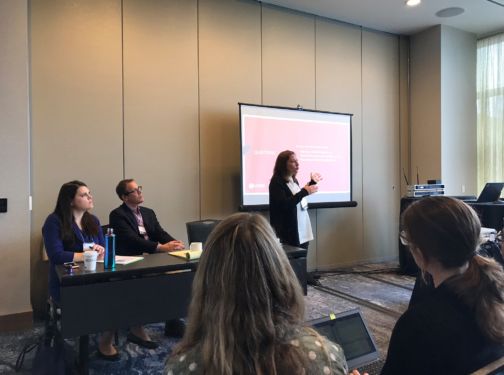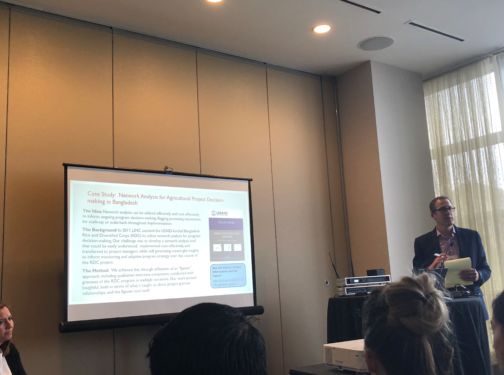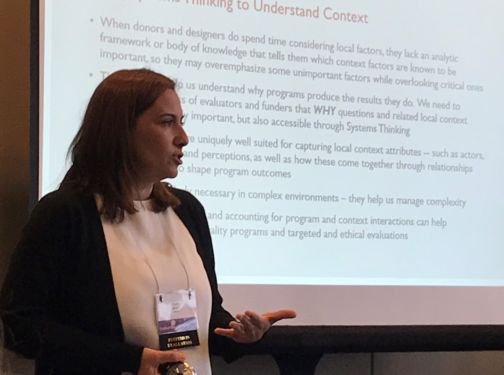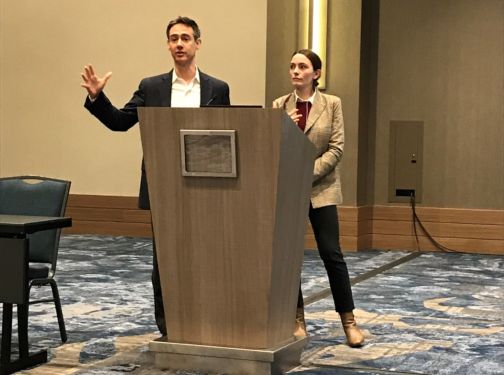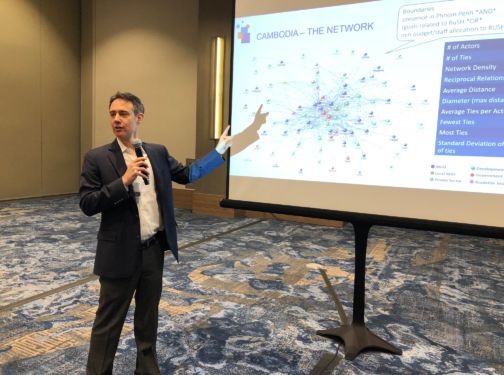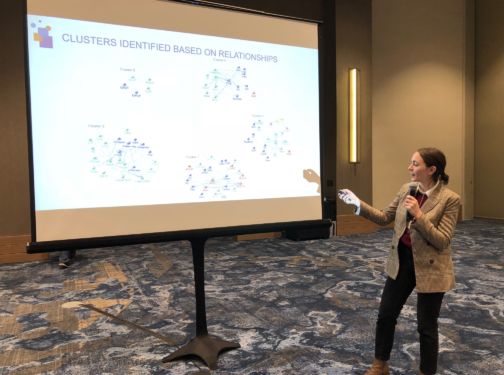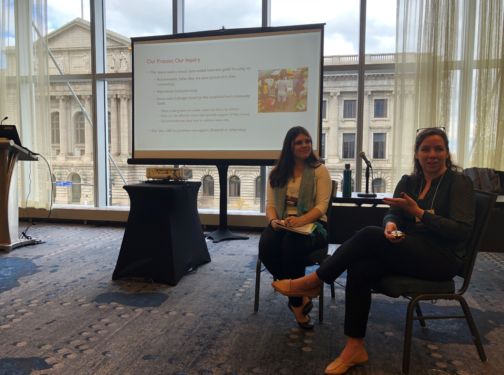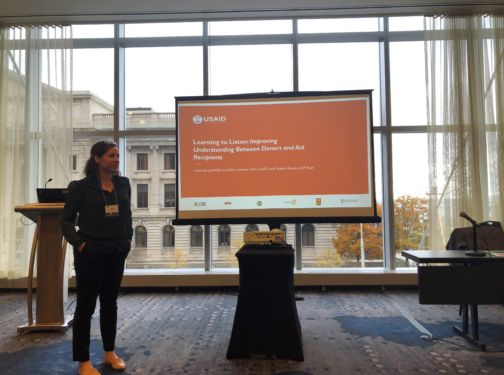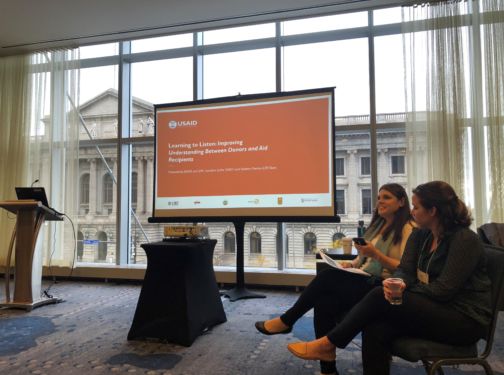This month, LINC team members traveled to Cleveland, OH to the annual American Evaluation Association conference to connect with evaluators and share insights from across the field. Read on to learn about LINC’s presentations and the projects and challenges from which we’ve learned.
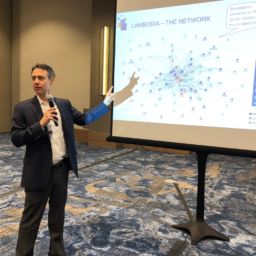
Our work in Cambodia found that there were groups coalescing around specific water and sanitation issues already. These are assets that can be built upon by local actors themselves.
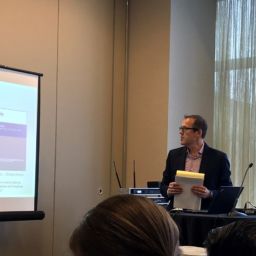
We realize intuitively that our work takes place in a complex, dynamic environment, but we struggle to incorporate that context into design and evaluation.
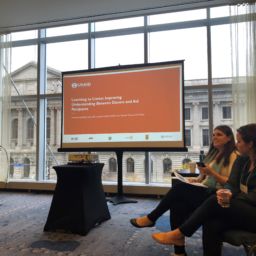
We also asked interviewers to use their intuition. It was important not just to reflect on what was said but also on how people felt after coming out of each listening exercise.
Most evaluations and literature assessing success factors in development focus on project management-related factors – things we can control, like how interventions are designed and implemented. In this session, LINC Managing Director Patrick Sommerville, joined by partners from Local Systems Practice consortium member ANSER, discussed what a context-based approach to evaluation might look like using systems thinking tools. Drawing from experience applying a systems-thinking lens to projects across multiple regions and sectors, Patrick discussed ongoing research into which factors should be taken into consideration to characterize local context and maximize the outcomes of development work. Attendees also learned about systems tools that can be used to understand complex environments, and case studies from programs in Afghanistan and Bangladesh that benefited from systems-informed views into context and impact. To learn more, read about LINC’s systems-thinking approach, its work in Bangladesh, and the Local Systems Practice program.
This session brought together three papers from five consortium partners of the USAID-funded Sustainable Wash Systems (SWS) project for a discussion of the utility of systems thinking and the application of Organizational Network Analysis (ONA) for promoting and measuring sustainability in the WASH sector. Consortium partners, including LINC Managing Director Rich Fromer and Program Associate Megan McDermott, presented preliminary results from two ONAs, focusing on how members of each WASH network currently interact with each other, the implications of this information on improving local network sustainability, and a comparison of results between two cases to understand the broader application of and implications for using Network Analysis to evaluate and improve network coordination in a variety of WASH contexts. To learn more, read about the preliminary reports from the SWS project and LINC’s network analysis tools.
At this roundtable discussion, LINC Program Director Jenna White lead a deep dive into the best way to capture and analyze qualitative information from a broad inquiry conducted by non-researchers. As a component of the USAID Local Works-funded Local Systems Practice (LSP) activity, Jenna spent 3 months working with USAID/Philippines on a “Broad Listening Tour” of the country to better understand the development needs of local communities. In contrast to more formal survey methods like interviews or polling, “Broad Listening” seeks to engage populations of interest in more natural conversations to elicit insights around the most prominent issues, priorities, and local resources available for better targeted and more responsive programming. To facilitate a casual, natural environment during the Broad Listening, audio-recordings and verbatim notes were infeasible – instead, the team designed a simple reflection template to capture themes and issues based on participant conversations, experiences, and intuition, and to serve as a basis of analysis. Joined by partners from the LSP consortium, Jenna discussed the results and application of these tactics and her experience leading this innovative project. To learn more, read about the Local Works program and LINC’s mission of empowering locally-led development.

